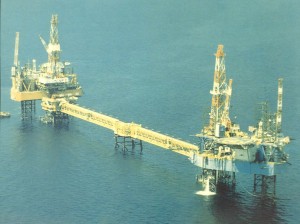Super alloys for Natural gas and oil plants
Natural gas has been consistently one of the most abundant energy sources on this earth. The increased recovery of new gas is done through deep developments that create aggressive media for downhole tubular and other well parts. Earlier the selection of alloys for oil and gas plants was very straightforward. Low steel grades and carbon steels were used for drilling and tubular development with a bunch of nickel alloys that were commonly used in the particular set of applications for example valves and equipments. In the present time, the choice of materials has become a challenging task that includes financial and protection factors. This challenge is created by many factors such as:
- Deep wells having elevated temperatures and pressures
- Improved recovery methods like stream or carbon dioxide injection
- High weight factors, particularly offshore
- The requirement of excellent corrosion resistance in well conditions involving hydrogen sulphide, carbon dioxide and chlorides.
The selection of materials is particularly a complicated process for sour gas wells that have H2S media. In these wells this gas is very toxic. In few sour conditions, the attack can be limited by using preventers with carbon steel tubes. Although these preventers may be expensive or somehow inconsistent specifically at the elevated temperatures. In several cases, the solution is the use of super alloys for tubes and other plant components.
A super alloy eliminates the need of preventers, decreases weight, adds security, prevents workovers and limits the downtime.
Alloy types for downhole tubes
The super alloys are fit oil plant tube materials that can deal with highly aggressive conditions in oil and gas plants across the globe. These materials enable secured and economical development from resources involving severely high temperature, pressure and hydrogen sulphide gas. The recommended grades are Hastelloy c276 material and Incoloy 825 that are widely used for offering supreme features of corrosion resistance while controlling the cost. These alloys are made in the wide variety of forms for downhole components and surface systems. Plain end tubes and combining stock are developed in diameters, wall thickness and yield strength for the whole tubing and structure needs.
Incoloy alloy 825 prevents attack of oxidizing and reducing acids, chloride ion stress corrosion cracking, pitting and intergranular types. It is particularly fit for use in the sour well conditions. It can be used in the conditions where stainless steel types become sensitive towards chloride based stress cracking, pitting and crevice attack. On the base of specific level and temperature, type 825 has offered good prevention of stress corrosion attack in H2S partial pressure about 1000psi or 7 MPa. It can be used up to 350oF or 175oC.
Hastelloy or Inconel C276 is basically a NiMoCr alloy that also offers adequate service in sour well conditions involving free sulphur. It is widely used in the oil plant tube components to provide the outstanding prevention of attack in media containing H2S. This alloy type can be cold processed to achieve high strength with least yield strength about 1034 Mpa. Providing good yield strength, temperature and service in free sulphur media, Hastelloy C276 prevents cracking at H2S partial pressure about 10,000 psi or 70 MPa. The grade resists sour gas corrosion at temperatures up to 260oC.


